New Covenant Parallel - A Postscript
I have often pondered the wonder of God speaking with Moses, His finger writing the Law, knowing full well that His people were making an idol in the camp below. The LORD did not withhold Himself even as His people strayed from the promise they had made just weeks before. God continued to commune with Moses and instruct him in His ways.
It struck me hard at Mass last night that Jesus did exactly the same thing …

Penance - Thoughts for Holy Week from Exodus
I grew up under the teaching that penance was a misguided religious practice. I understand the heart of the argument. God’s grace is free. His mercy flows from His nature. We cannot earn our pardon; Christ alone is our atonement. All these things are true. And yet, I have come to believe in the redemptive nature of penance.
I value penance partly from human experience. When we sin against a neighbor, our relationship is damaged. Forgiveness is essential to restore peace; but we as sinners cannot demand forgiveness from those we have wronged Mercy must flow freely for it to carry power. However, mercy will not hit is mark, it will not work its wonders, unless the recipient is truly penitent. Penance is the means by which we recognize and receive the holy gift of mercy.
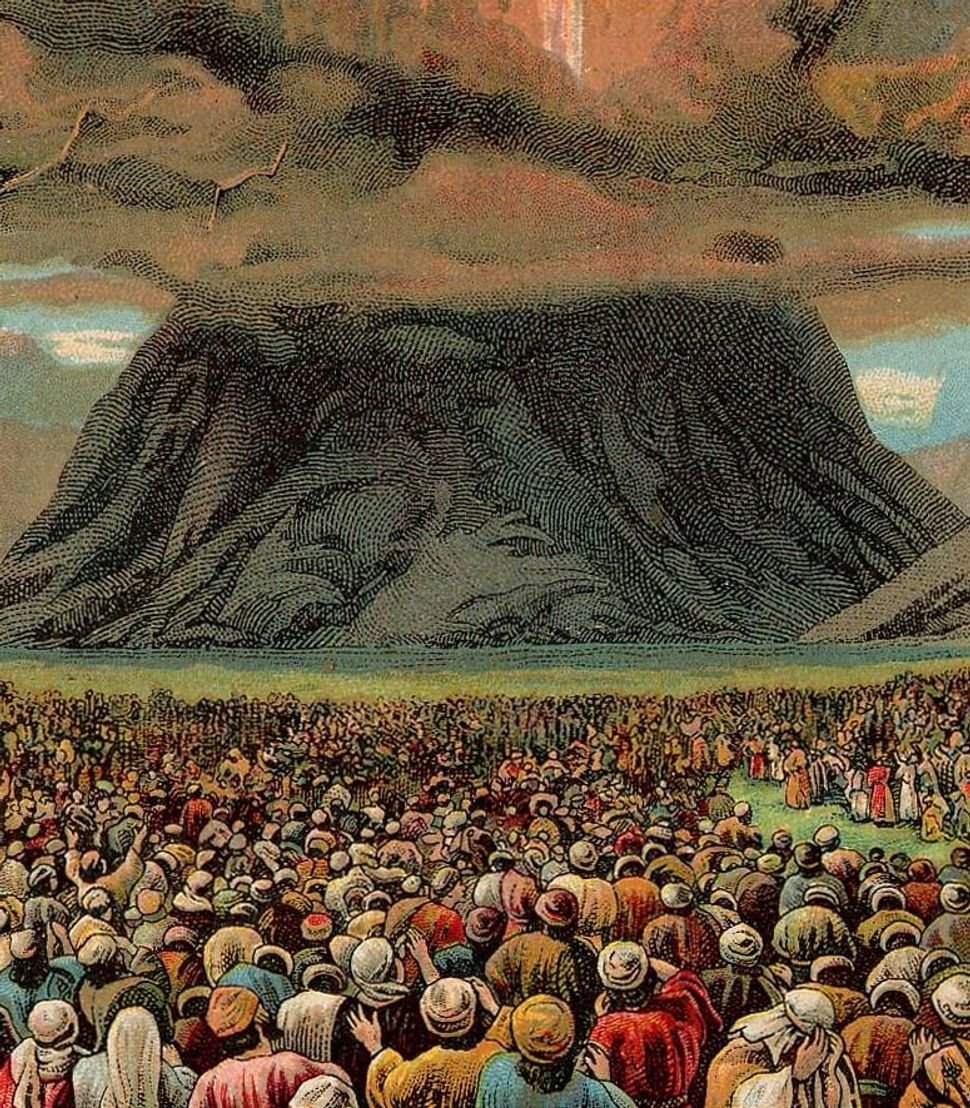
Moses and the Glory
If Exodus 32 is the low point of the Old Testament, then Exodus 33-34 are its height. The tenderness of God is demonstrated in the face of betrayal. His mercy and justice are put on display. In these chapters the LORD bares His heart to a friend. He hurts like a rejected Husband, but He takes comfort in the love of His prophet - one whose heart is gripped with awe and wonder - one who will not let go - one who intercedes on behalf of the people God has chosen to love.
The passage is so beautiful that I must quote it.
Then Moses said to the Lord, “See, You say to me, ‘Bring up this people!’ But You Yourself have not let me know whom You will send with me. Moreover, You have said, ‘I have known you by name, and you have also found favor in My sight.’ Now then, if I have found favor in Your sight in any way, please let me know Your ways so that I may know You, in order that I may find favor in Your sight. Consider too, that this nation is Your people.” And He said, “My presence shall go with you, and I will give you rest.” Then he said to Him, “If Your presence does not go with us, do not lead us up from here. For how then can it be known that I have found favor in Your sight, I and Your people? Is it not by Your going with us, so that we, I and Your people, may be distinguished from all the other people who are on the face of the earth?”

Moses, Man of Sorrows
I am coming to love Moses as a friend. When I head his stories as a child, he seemed so imposing, even frightening, that I could hardly think of him as a real person. But the better I know the LORD, the more I understand why Jews revere Moses so highly. Moses proved himself a faithful friend to God through suffering. Moses was a man of sorrows, like Jesus. His intimacy with God was, at times, a burden he bore on behalf of the people. He was cursed, maligned, rebelled against - and yet he served the people as a faithful shepherd, a teacher, and a judge. He began his service at the age of 80 after years of exile in the desert. He was too old by human reckoning, to bear such weight. Yet God entrusted Moses with a level of authority unparalleled until Jesus walked the earth. The connection between Jesus and Moses is so mysterious and significant that the Father arranged for Jesus to see Moses in person before His passion. That is true friendship! (Mat 17:1-3)

Jesus and The Wild Animals
The parallels of Jesus’ forty days of temptation with Israel’s sojourn in the desert would be difficult to overstate; and yet, the imagery in Mark’s account harkens back even further - back to the Garden of Eden in the fall of Man. Eve was tempted much like Jesus. She met the Accuser face to face. She fell for his lies, as did Adam, and they were driven out from Eden. (liek Jesus was driven into the wilderness.) With the expulsion of Adam and Eve, all of creation fell into disorder. The animals which Adam had named turned wild. They became a threat to the very people who were supposed to be their stewards. There was enmity between Eve and the serpent. Plagues of locusts, frogs and gnats inflicted upon Egypt. Wild jackals, lion and bears threatened both sheep and shepherds. Scorpions stung men and frightened children. Creation was marred with death and violence.
Mark’s gospel includes a fascinating detail left out of Matthew’s much longer account of Jesus’ temptation. It says that and “He was with the wild animals.”……

Judges in the Desert
The two major themes of Exodus are interwoven - the deliverance of God's people and the revelation of God's name. These are also the two major themes of Revelation - the revelation of God's Throne, and the final victory of His people in Jesus's name.

Marah and Elim
So Moses brought Israel from the Red Sea; then they went out into the Wilderness of Shur. And they went three days in the wilderness and found no water. Now when they came to Marah, they could not drink the waters of Marah, for they were bitter. Therefore the name of it was called Marah. And the people complained against Moses, saying, “What shall we drink?” So he cried out to the Lord, and the Lord showed him a tree. When he cast it into the waters, the waters were made sweet. - Exodus 15:22-24

The Staff of Moses
Being that scripture is the primary revelation of God to mankind, and that scripture is limited in length, it can be easy to think we have read it - that we know the story. It is easy to convince ourselves that we have “heard” as He has to say. This temptation is often expressed by relegating God’s self-revelation to the realm of theology. Once we feel reasonably secure in what we believe, we feel free to move on to our litany of requests. But God’s revelation in scripture is not like that.

What If?
With the exception of Jesus, of course, the LORD has never had a friend like Moses. No other human has been vested with such authority. No other person has spoken to God at such length, so regularly, face to face “as one speaks with a friend.” Scripture says God put His words in Moses’ mouth and His authority in Moses’ hands. It was an awesome, beautiful partnership, but it got off to a rocky start.

My Mother and Jacob - One Last Time
I know that the parsha this week is taken from Exodus 13. The readings have moved on, but I am stuck in Genesis. The story of Jacob is speaking to me in ways that it never has before. I cannot help thinking of him as I grieve my mother’s passing. In fact, I mention him in her eulogy which I would like to post here today. I do not mind focusing on my Mom today as the Lord commands us to honor our fathers and mothers. In doing so, I feel more closely connected with Israel the patriarch as well.
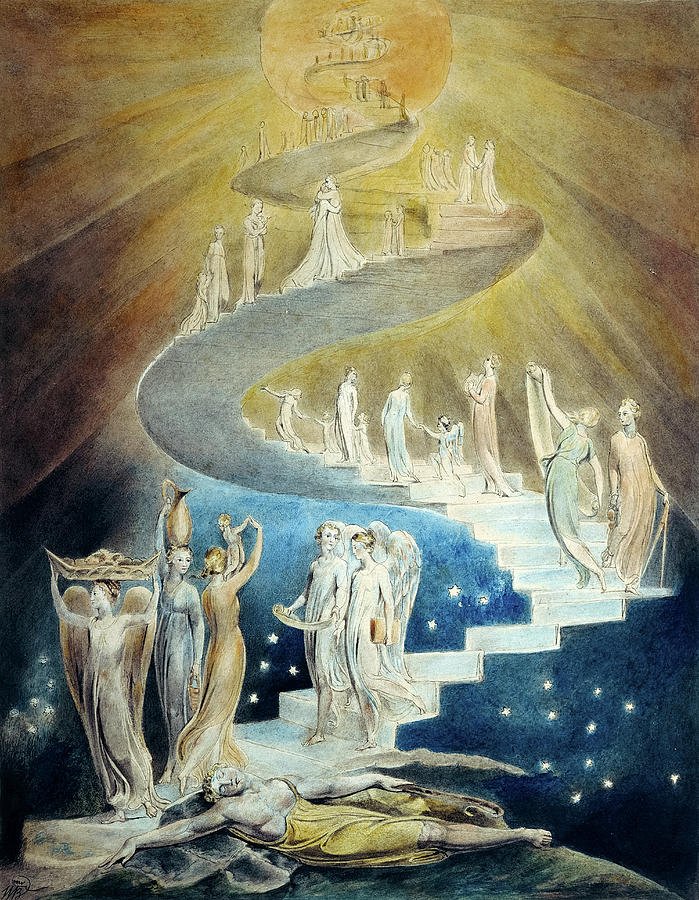
The God of Bethel
This is the Torah verse which grabbed me this week:
”I am the God of Bethel, where you anointed a memorial stone, where you made a vow to Me; now arise, leave this land, and return to the land of your birth.’” - Gen. 31:13
The names by which Lord makes Himself known are always significant. In this case, why not address Jacob as “the God of Abraham and Isaac” as He had before? The Lord could have dazzled Jacob by revealing Himself as the Creator of the Universe. He could have frightened the patriarch with the mystical answer He gave to Moses, “I Am Who I Am.” Instead, God chose to refer to the place where He first revealed Himself to Jacob.

Wrestling, Part II
My mother is the one who showed me the significance of the place God chose to wrestle Jacob. It is a great gift she has given me this Advent. I have been thinking of Jacob as I sit my her bed because she is currently engaged in the greatest wrestling match of her life. Mom is about to return home …

Jacob’s Sons and Direct Address
The following meditation is taken directly from Rabbi Jonathan’s Sack’s commentary on the story of Joseph and his brothers. It is relevant to all who seek to follow the God of Abraham Isaac and Jacob. It is especially important to those of us in the CTR community who are committing to love one another through the direct address which Jesus taught.
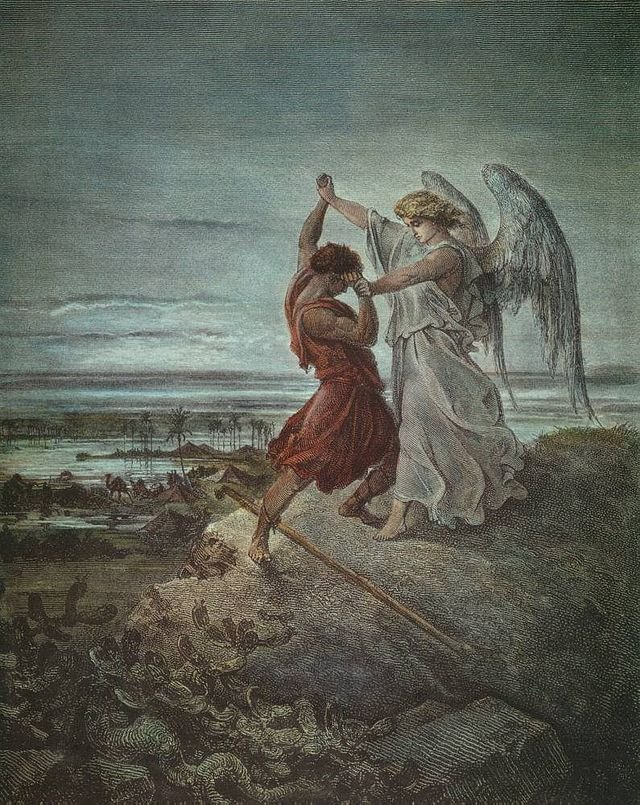
Jacob the Wrestler
When I was a child in Sunday school, Bible stories were presented as morality tales. The patriarchs and prophets were heroes of the faith - models to be emulated. The stories about Jacob, however, never seemed to fit. I knew that for some reason God favored Jacob over Esau; but Jacob seemed like a lying schemer to me. Was his story a lesson in the ends justifying the means? That interpretation seemed incompatible with the rigors of the Law, and the teachings of Jesus. Did God simply overlook the conniving of Jacob’s youth in foreknowledge of who he would become? Perhaps, but there is never a point in Jacob’s story where he passes a great test of faith, like Abraham did. Nor is he portrayed as a man of prayer, like Isaac. In fact, while Jacob schemes to claim the firstborn’s birthright, it seems he is more interested (at first) in the honor that it confers than in the details of the promise given to Abraham. I say that because of Jacob’s reaction to his revelation of God in a dream.
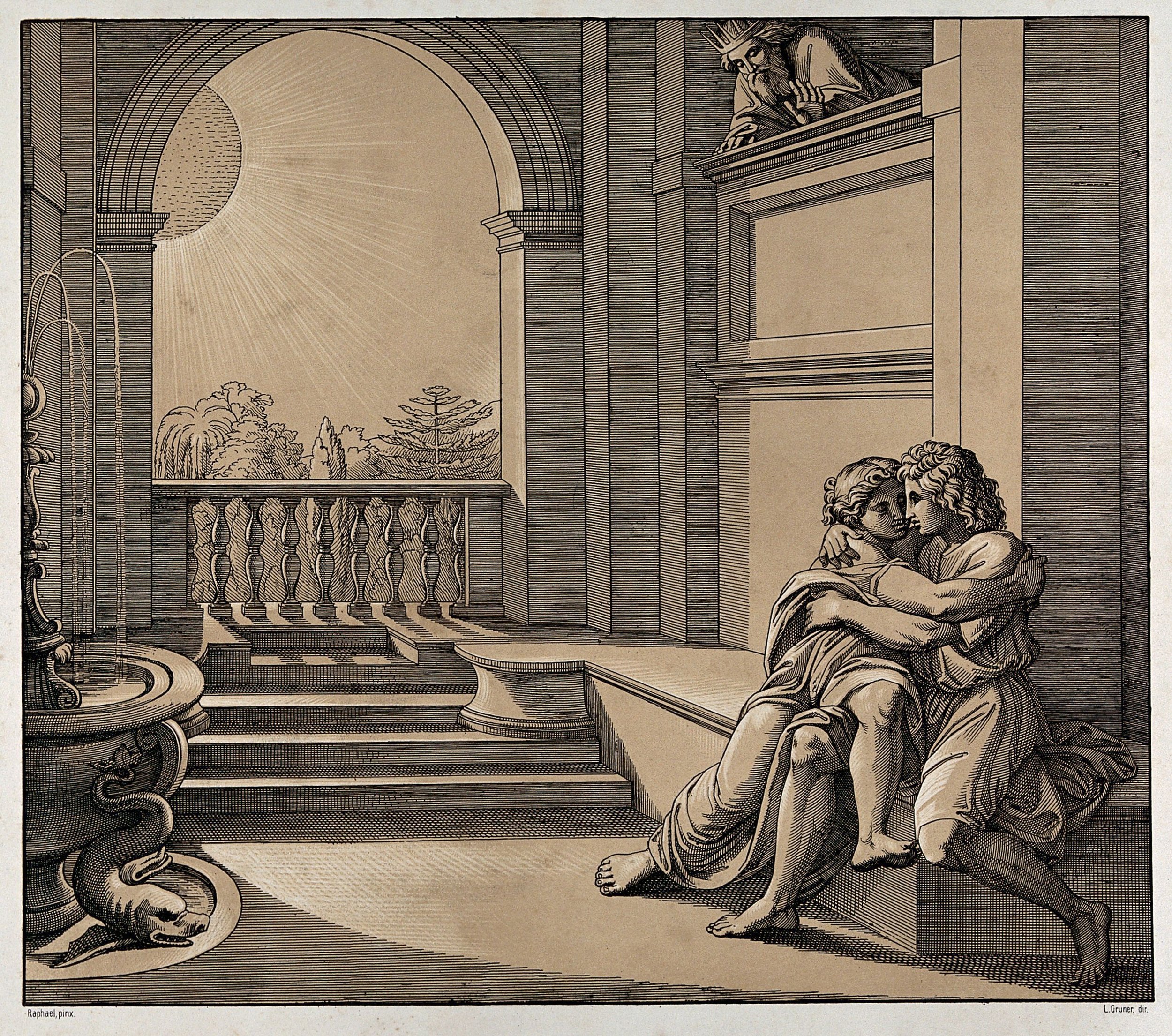
Isaac and Rebekah
I have not heard many teachings focused on Isaac as an adult. The stories of Abraham and Jacob occupy more space in scripture. Even the terrifying, pivotal story in which Isaac is placed on the altar centers on Abraham’s faith rather than Isaac’s. But Isaac was no helpless infant in that drama. He carried the wood for the sacrifice on his back. He submitted to his bonds though he could have overcome his elderly father in a fight. Isaac could have parted ways with Abraham after the ordeal, but he did not. He loved his father to the end of his days, even as Jesus loved His father unto death.
Though scripture says little about Isaac as an adult, we know two things with certainty.
1) Isaac was in the habit of mediation, so we can assume he cultivate a rich inner life.
2) He loved his wife Rebekah. Even when Isaac lied about his wife to Abimelech (as Abraham had done with Sarah), he could not keep away from her. Now it came about, when he had been there a long time, that Abimelech king of the Philistines looked down through a window, and saw them, and behold, Isaac was caressing his wife Rebekah. - Gen 26:8

Birthright
The older I get, the more I repent of my earlier, youthful reactions to scripture. For example, I used to be sad when I read the Lord’s decree in the days of Noah that “My Spirit will not contend with humans forever, for they are mortal; their days will be a hundred and twenty years.” When I was young, I wanted to live for 900 years, like Adam. But that is not the case anymore. This world, as the Lord knew, is full of violence and heartache. It is a mercy we do not live to 900!

The Challenge of God’s Sovereignty
This week’s Torah readings were all about Abraham. As it happens, I have spent a lot of time thinking about Abraham. Most who read this blog have already read my book, so I feel no inclination to post my own reflections. Rather, I would like to post another teaching by Rabbi Jonathan Sacks because it touches on both the beauty and the challenge of living under God’s authority.
God has the right to govern the world because He is the one who created it. This is why, Sacks argues, the Law (Torah) begins with the creation story. God made the earth. It belongs to Him; thus He has the right to give land to whom He chooses, though we may not understand His reasons. God created our bodies; thus He has the right to set boundaries upon our actions, even when those boundaries confound us. We know that God is good and just and all His ways are right; but sometimes His ways offend us. There is no story which troubles the human heart more than the Binding of Isaac. I think Rabbi Sack’s comments on the story are timely.
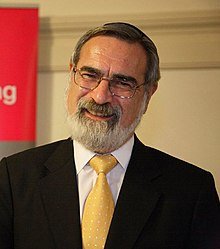
A Tale of Four Cities
The following Torah reflection was written by Rabbi Jonathan Sacks who served as the Chief Rabbi of the United Hebrew Congregations of the Commonwealth from 1991-2013. Enjoy!
Between the Flood and the call to Abraham, between the universal covenant with Noah and the particular covenant with one people, comes the strange, suggestive story of Babel:

God of Vast Array
I am behind in my Torah reading. With Marianna’s visit and the news from Israel, my thoughts have been in the Middle East. My hands have been busy cleaning house and cooking for a retreat tomorrow. On Sunday, I preach at Hope Chapel.. But the real reason my studies are lagging is that I love the first three chapters of Genesis. I find it hard to move along.
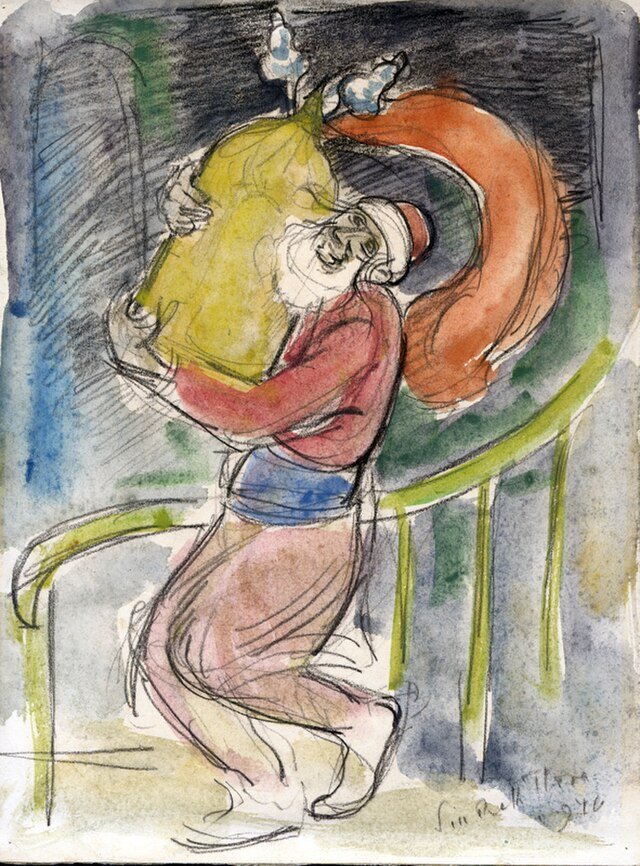
Simchat Torah
On the eighth day of Sukkot, the last words of Deuteronomy are read in the synagogue. Then the Torah scroll is rolled back to the beginning amid rejoicing and dancing. The cycle of readings has been completed once more. For the next couple of months, our readings will come from Genesis. But I cannot leave Deuteronomy without a few final thoughts, and a beautiful reflection from my friend Diane.